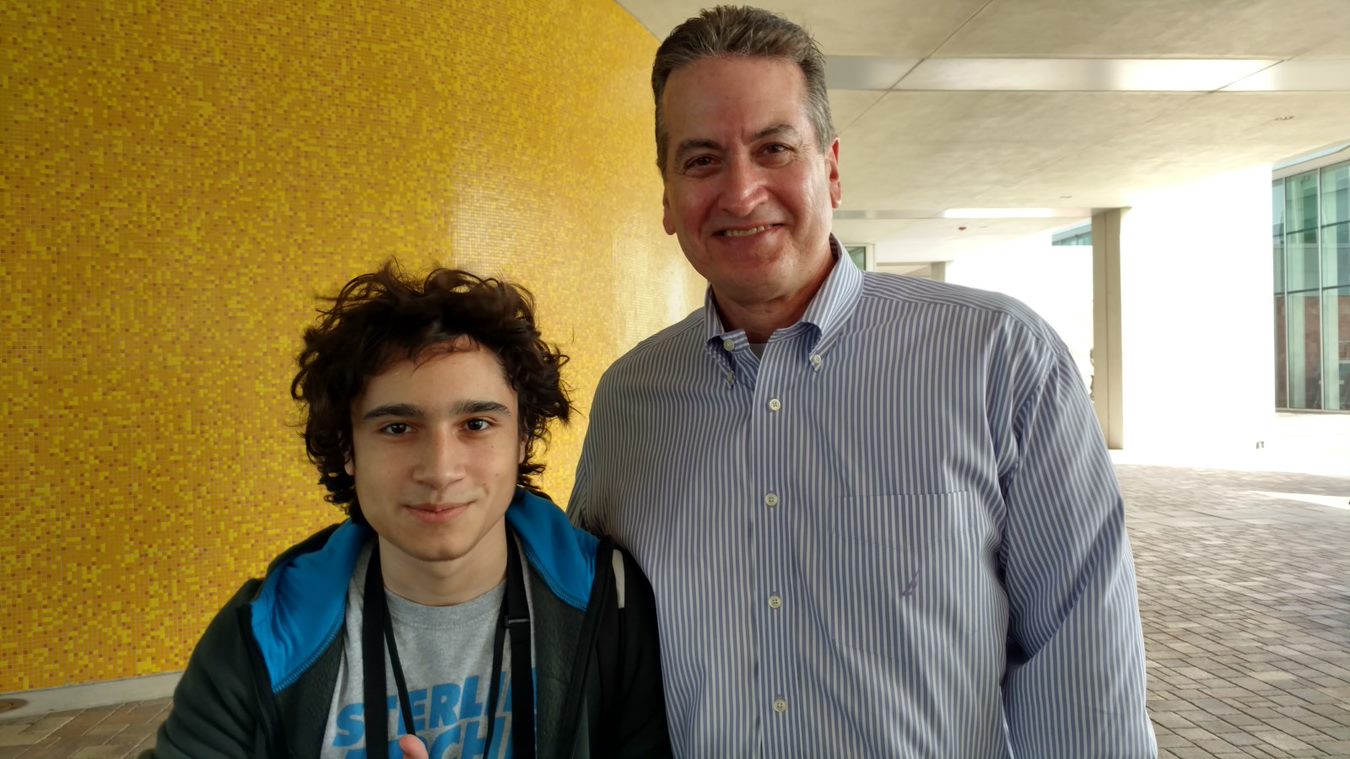
Little Justin and Big Alan met as a School-to-Work match at Nielsen in 2017, where Justin would visit his Big at his workplace to learn post-graduation and professional skills. Justin was interested in computers and technology, so he was a perfect fit to be matched at Nielsen because they use technology to gather information on audiences with media insights.
Alan was an excellent listener when Justin needed someone to talk to about his plans after high school and what was going on with his life. And Alan was excited to show Justin the ropes at his workplace. After graduating high school, Justin and Alan chose to enroll in Big Futures so that Big Brothers Big Sisters and Alan could continue to support Justin in his goal of attending college.
Justin was grateful to have Alan as a support system these past four years. Justin’s family fell on hard times and struggled both before and during the pandemic. Even when Justin had challenges enrolling into Hillsborough Community College (HCC) for a year, Alan was there for him throughout the process, and Justin was finally able to register!
Today Justin has completed his first year at HCC and made the Dean’s List studying Computer Science. He hopes he will get all As and Bs in his next semester and stay on the Dean’s List.
Defend the potential of youth in our community by supporting our one-to-one mentoring programs. Make a donation or volunteer as a mentor today!


